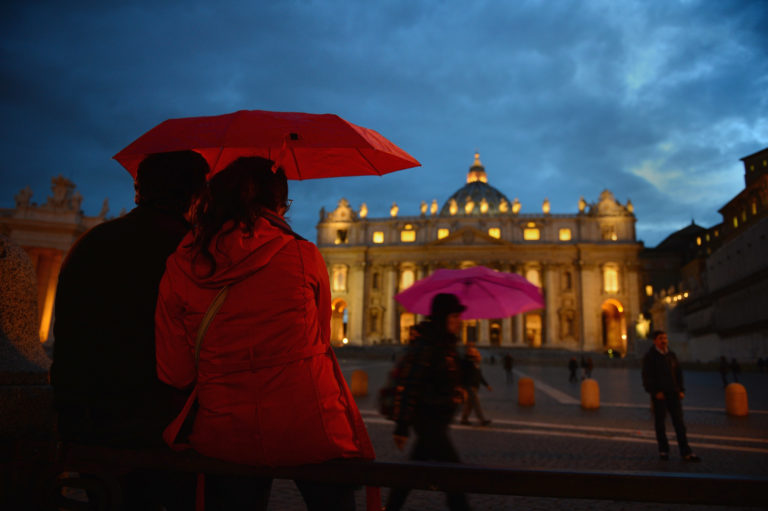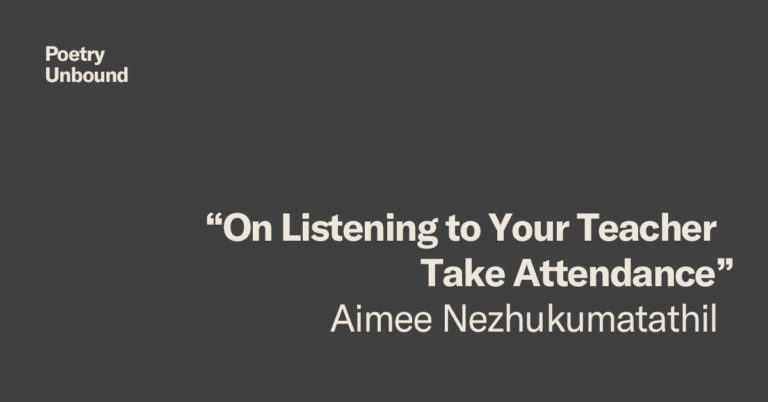
Image by Jeff J Mitchell.
The Subversive Power of Beauty
Beauty has the potential to be a transcendent and transformative element in conflict situations. In John O’Donohue’s book, Divine Beauty: The Invisible Embrace, he argues that beauty has real power, a power that can be subversive.
Moments of beauty — be it music, art, nature, or an act of kindness — can take you out of a space of weary familiarity. Beauty, in whatever form it takes, can interrupt a pattern of behavior or a way of thinking and cause us to stop in our tracks and take notice of it. There are people holding out on the toughest frontiers of existence, surrounded by misery, but yet somehow sustained by a moment of beauty.
A story can act as a vehicle for transcendence. Joseph Campbell suggests that a story has the power to pitch you out of your everyday experience. Once you’ve heard it and return to where you were, you see the world, or the person telling the story differently. He likens it to walking down 5th Avenue in New York City and stepping into St. Patrick’s Cathedral. Suddenly you’ve left the busy metropolis and are standing in a huge open space. The light is different. It’s quiet. You begin to think on a different level. And, when you return to the bustling world of the street, cars still rush by, people still hurry about their business, but stepping into that different space creates a moment of transcendence.

At its heart, a moment of beauty brings transcendence.
Naval architect and sailor Steve Callahan survived for over 50 days drifting across the Atlantic. Despite constant danger and fear, he was able to write in his journal:
“I am constantly surrounded by a display of natural wonders….It is beauty surrounded by ugly fear. I write in my log that it is a view of heaven from a seat in hell.”
Despite being surrounded by profound uncertainty, he maintained a capacity to recognize and appreciate beauty.
This presents us with an interesting and challenging concept. Beauty is not some vague, abstract idea. It’s the opposite. It’s at these times, when there is a dearth of hope, that beauty, in all its forms, has the ability to create moments of transcendence. As Victor Frankl writes:
“As the inner life of the prisoner tended to become more intense, he also experienced the beauty of art and nature as never before. Under their influence he sometimes even forgot his own frightful circumstances. If someone had seen our faces on the journey from Auschwitz to a Bavarian camp as we beheld the mountains of Salzburg with their summits glowing in the sunset, through the little barred windows of the prison carriage, he would never have believed that those faces were the faces of men who had given up all hope of life and liberty. Despite that factor — or maybe because of it — were carried away by nature’s beauty, which we had missed for so long.”

Not all music is beautiful. We’ve all heard music that was purely mechanical. Elevator music, for example.
The difference between noise and the beautiful comes when someone imparts something of themselves into a composition. When we place something of our spirit into a piece of music, some art or a gesture of kindness, we give it that sense of beauty. Without that element of spirit, it’s purely glamor, and as the Irish literary critic Denis Donoghue said, referring to some mediocre poetry:
“The first impression it makes on you is the only impression it will ever make. No amount of pondering will make it glow.”
Beauty can be incredibly powerful. Writers on survival also agree that a common characteristic among survivors is that they’re surviving for someone else, or some purpose in life that’s too important to let go. The role of beauty in this is that, through its transcendent quality, it reminds us of our core motivations and of what truly matters. When people are surrounded by misery, conflict, or deprivation, there is precious little to remind them of this. Here Viktor Frankl explains it better than I ever could:
“Generally speaking, of course, any pursuit of art in camp was somewhat grotesque. I would say that the real impression made by anything connected with art arose only from the ghostlike contrast between the performance and the background of desolate camp life. I shall never forget how I awoke from the deep sleep of exhaustion on my second night in Auschwitz — roused by music. The senior warden of the hut had some kind of celebration in his room, which was near the entrance of the hut. Tipsy voices bawled some hackneyed tunes. Suddenly there was a silence and into the night a violin sang a desperately sad tango, an unusual tune not spoiled by frequent playing. The violin wept and a part of me wept with it, for on that same day someone had a twenty-fourth birthday. That someone lay in another part of the Auschwitz camp, possibly only a few hundred or thousand yards away, and yet completely out of reach. That someone was my wife.”

All of this raises some important challenges to those of us who concern ourselves with the role of music in conflict transformation.
Beauty is not something to be dismissed. Its role is of critical importance. Moments of beauty, expressed through music, have the capacity to interrupt patterns of behavior or established routines. They can stop us in our tracks and create moments in which our present circumstance is transcended. Music that’s sourced in the heart and spirit has the ability to cut through misery and the darkest of contexts.
These in turn can form core elements of resilience and survival. It’s not purely entertainment. It can be so much more profound than that.
Through music, the role of beauty can serve as a reminder of what life was like and what it can be like. It can remind us of why we choose life over death. In The Moral Imagination, John Paul Lederach notes that violence’s greatest lie is its attempt to proclaim that all around it is wasteland. The embrace and celebration of creativity, Mr. Lederach suggests, is one way in which that lie is exposed. Beauty finds its home alongside creativity.

The implications are clear. We can either leave this beauty up to chance or accept that our challenge is to try and explore how to do this more consciously.
What would happen if the people running refugee camps were made aware of the power of beauty to encourage resilience and hope? What inspiration would blossom if we listened to Sergio Fajardo, mayor of Medellín, and declared that our most beautiful buildings should be built in the poorest parts of town? What if we actively encouraged creativity, music, and art in communities numbed by conflict? What ideas would we inspire were we to encourage an appreciation and awareness of beauty in the places we work and with the people we talk to?
Beauty is subversive. Why? Because it is powerful. It’s powerful because it makes us dream. It makes us think. It makes us imagine a world that’s bigger than the one we know and one that’s worth taking a risk for. Even in a brutal world, beauty exists and its power leads us to hope, faith, and love.
Beauty inspires. It’s as simple as that.
